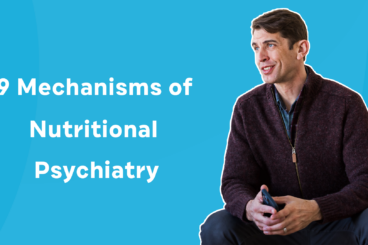There’s been a lot of talk about how “traditional” diets (i.e., what your grandmother served for dinner) are better for you. I’ve generally taken issue with this precept; I wanted to believe it was true, but where’s the science supporting it?
A study entitled “Association of Western and traditional diets with depression and anxiety in women” looked at how dietary habits relate to depression and anxiety in women. These are two of the most prevalent mental health disorders, and they are twice as common in women. It was one of several studies released in 2010 that helped solidify the notion that “you are what you eat” applies to the brain. It came out just as I was finishing up my book, The Happiness Diet, and I was very excited, as a physician and as an author, to get even more support for what I’ve been preaching.
Looking at “traditional” dietary patterns–fish, meat, whole grains and other unprocessed foods–and comparing them to “western” dietary patterns of fried and processed foods, refined grains, sugary products, researchers concluded that a traditional diet is associated with lower levels of depression and anxiety.
This is the type of study that’s looking for a correlation. You’ve probably heard the truism that “correlation does not prove causation.” It’s absolutely true. But correlation is the first step to finding that causation. And that’s what the researchers did here.



